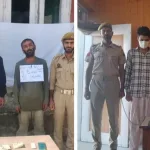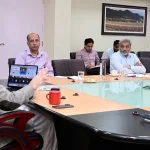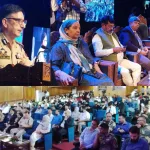Infertility is increasingly becoming a serious public health concern in Kashmir. Current data suggest that nearly 15–16% of couples in the region face difficulty conceiving, which aligns with national averages. However, the number is steadily rising and is compounded by multiple complex factors—medical, psychological, social, and environmental.
In particular, female reproductive issues contribute to more than half of all infertility cases in Kashmir. Common conditions include Polycystic Ovarian Syndrome (PCOS), endometriosis, blocked fallopian tubes, and premature ovarian failure (POF)—a condition unusually prevalent in Kashmir, even among women under 40. Many women also suffer from menstrual irregularities and hormonal imbalances such as elevated prolactin levels, which further impair fertility.
On the male side, around 22% of infertility cases are due to issues like low sperm count (oligospermia) or absence of sperm (azoospermia). Lifestyle habits, environmental toxins, metabolic diseases, and psychological stress have been identified as major contributing factors affecting male reproductive health.
One of the key socio-demographic factors behind infertility is the delayed age of marriage. In Kashmir, men now typically marry in their mid-30s and women in their late 20s or early 30s. Fertility potential sharply declines with age, especially after 35, which reduces the window for natural conception.
Chronic stress due to political unrest and social instability in the region has also played a significant role. The long-term impact of conflict has contributed to widespread mental health issues—such as anxiety, depression, and trauma—which are known to interfere with reproductive hormones in both men and women.
Another concerning factor is the high rate of malnutrition, particularly among women. Around two-thirds of Kashmiri women are anaemic. Poor dietary intake, obesity or being underweight, and micronutrient deficiencies like iron and folate contribute to poor reproductive health and hormonal disturbances.
Management and Solutions
Managing infertility in Kashmir requires a multifaceted and compassionate approach:
- Clinical Evaluation and Treatment:Both partners should undergo comprehensive medical testing. For women, this includes hormone level analysis, ovulation assessment, and ultrasounds. Men should undergo semen analysis and endocrine testing. Treatable conditions like PCOS, thyroid disorders, or infections should be managed with appropriate medication, lifestyle interventions, and if needed, assisted reproductive techniques like IUI or IVF.
- Mental Health Support:Psychological support is essential. Infertility causes deep emotional pain and anxiety. Counselling, psychotherapy, and support groups can help couples cope with the emotional burden and improve treatment outcomes.
- Lifestyle Modifications:Couples should be advised to adopt healthier lifestyles—balanced diets, exercise, stress-reduction techniques (like yoga and mindfulness), and avoiding smoking or alcohol. Maintaining a healthy body weight and managing medical conditions like diabetes or hypertension also supports fertility.
- Nutritional Interventions:Improving diet quality and correcting deficiencies in iron, vitamin D, folic acid, and omega-3 fatty acids can positively influence fertility, especially in anaemic or undernourished women.
- Public Awareness and Education:There is a need for better awareness about fertility, menstrual health, early marriage counselling, and the importance of seeking medical help if conception doesn’t occur within one year of unprotected intercourse.
- Healthcare Infrastructure:Fertility services should be made more accessible and affordable, particularly in rural districts. This includes better-equipped fertility clinics, mobile diagnostic camps, and regulated IVF centres. Special emphasis should also be placed on mental health infrastructure, which is currently inadequate in many parts of Kashmir.
Conclusion
Infertility in Kashmir is not merely a medical issue—it is a social and psychological burden that deeply affects families. The causes are many: delayed marriage, rising stress, reproductive disorders, poor nutrition, and male infertility. Effective management demands not only quality healthcare services but also public education, emotional support, and better nutrition.
(Author is Senior Medical Officer (Ayush), District Hospital Pulwama.
Department of Health and Medical Education, Govt of J&K. Feedback:
[email protected])








